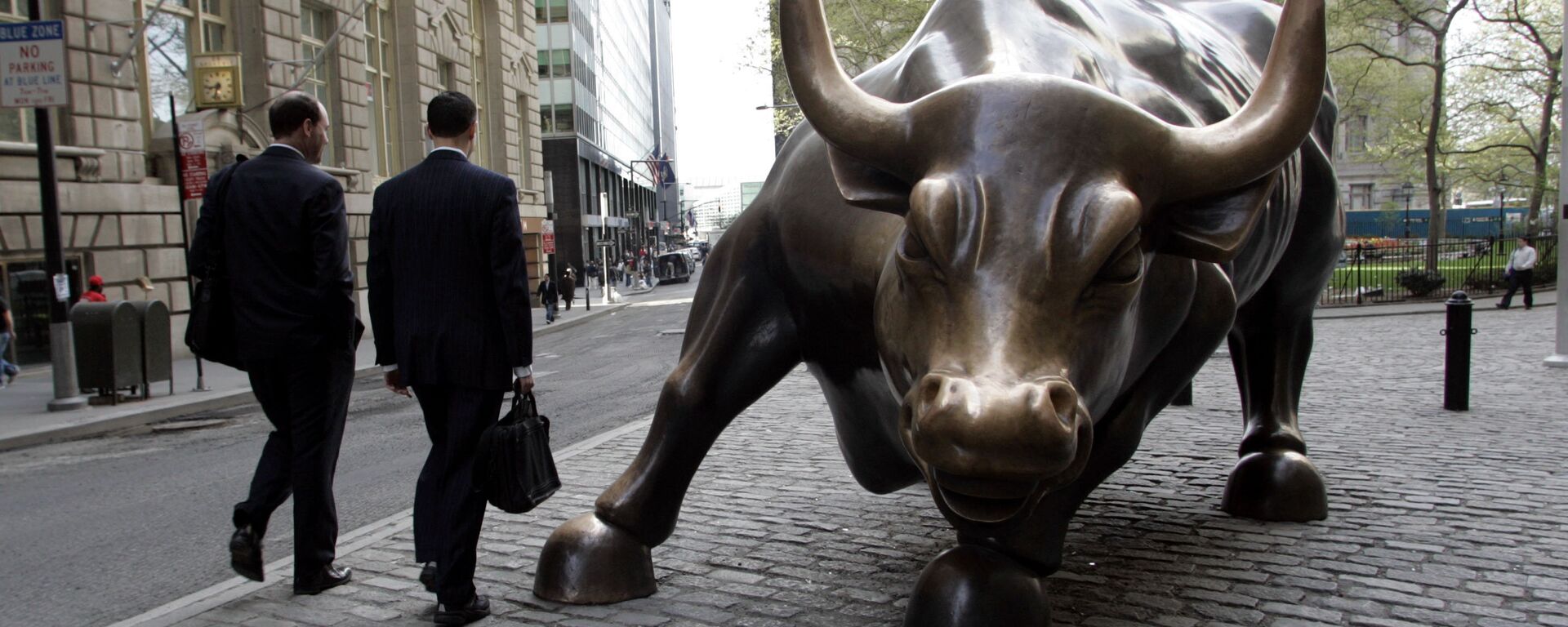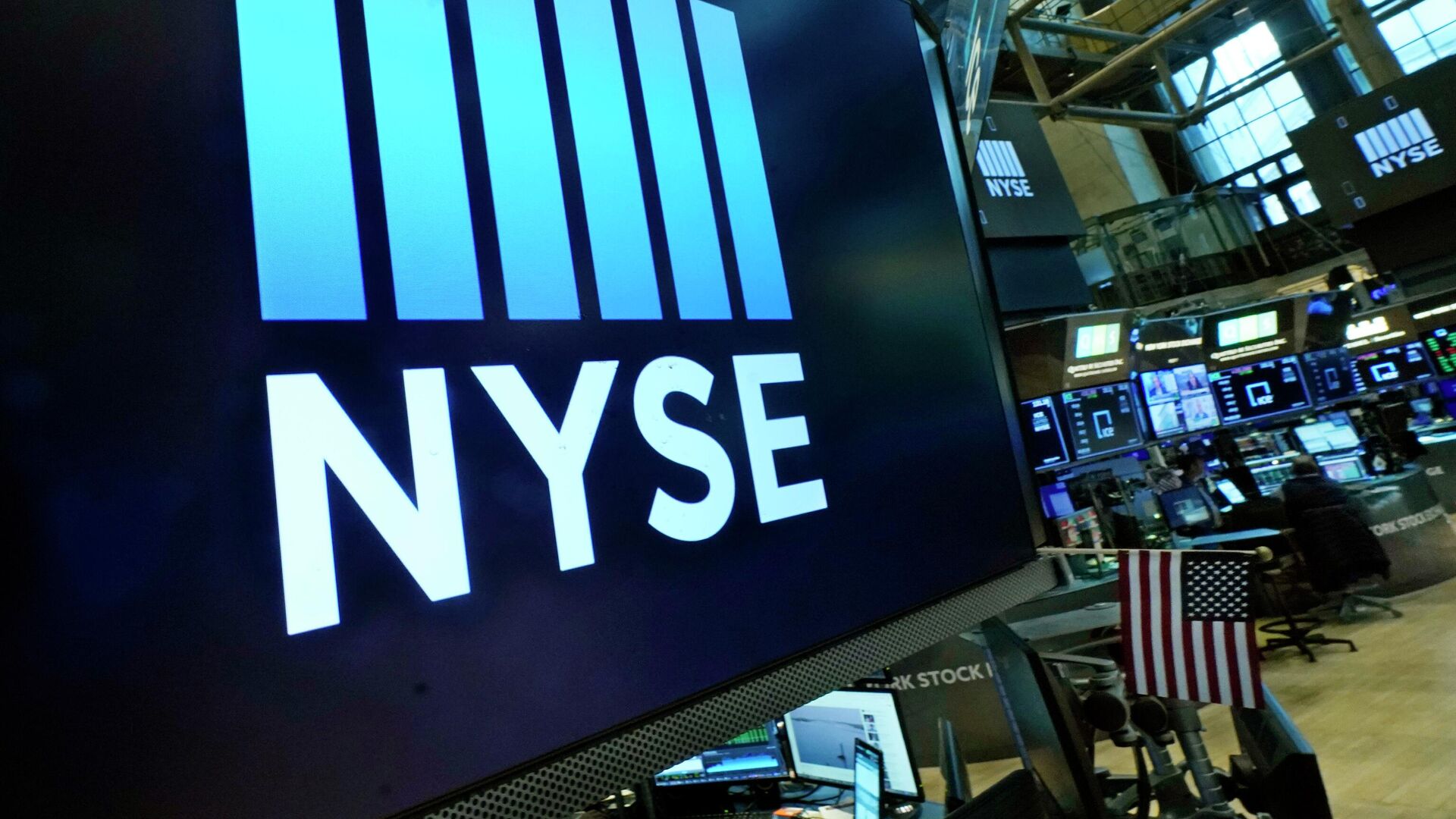https://sputnikglobe.com/20220926/wall-streets-stock-indexes-in-bear-market-territory-on-recession-worry-1101252156.html
Wall Street’s Stock Indexes in Bear-Market Territory on Recession Worry
Wall Street’s Stock Indexes in Bear-Market Territory on Recession Worry
Sputnik International
NEW YORK (Sputnik) - All three of Wall Street’s major stock indexes were in bear-market territory as investors shuddered at the prospects of recession amid... 26.09.2022, Sputnik International
2022-09-26T23:52+0000
2022-09-26T23:52+0000
2022-09-26T23:52+0000
americas
us
wall street
inflation
us federal reserve
https://cdn1.img.sputnikglobe.com/img/07e6/04/07/1094570322_0:320:3073:2048_1920x0_80_0_0_0fdd38367a7f47d419ea61504f52aac6.jpg
The Dow Jones Industrial Average, Wall Street’s broadest equities indicator comprising stocks of 30 large US corporations, closed the day down 1.1%. Year-to-date, the Dow was down 19.5%, just a hair’s breadth from the 20% drop that would put it in a bear market.The S&P 500 Index, which represents the top 500 US stocks, settled down 1% on Monday. For the year, it showed a drop of 23.3%.The Nasdaq Composite Index, which comprises marquee names in technology such as Amazon, Apple, Facebook, Netflix, and Google, finished down almost 1% on the day. Year-to-date, Nasdaq was down almost 31%.Achieving a soft landing for the US economy is difficult but possible as growth could take a dip this year and next, although inflation appears to have peaked, Susan Collins, regional head for the Federal Reserve in Boston, said Monday.The Fed also has a long battle ahead with inflation and US markets will likely be volatile until then, the central bank’s regional chief for Atlanta, Raphael Bostic, said.For more than a decade, the Fed had no problem with inflation in the United States, with annual price growth remaining below its 2% target. It could be argued then that the central bank’s real problem was a lack of inflation. All that changed with the 2020 coronavirus outbreak which upended global commodities production and supply chains. Since then US inflation, as measured by the broad Consumer Price Index, or CPI, has been at or near four-decade highs.To fight inflation, the Fed has raised interest rates by 300 points this year, from an original base of just 25 points in February. The central bank’s chairman Jerome Powell said last week that US rate hikes will have some way to go before the Fed considers a pause or reduction, with the likelihood of another 125 basis points being added before the end of the year.Despite the Fed’s rate hikes, the reading for the CPI remains at above 8% a year - more than four times the Fed’s 2% target.Many economists have warned that the Fed could push the United States into a deep recession with the sharpest rate hikes in four decades, pointing to the high-flying housing sector and one-time ebullient stock market as the central bank’s potential victims.
https://sputnikglobe.com/20220922/wall-streets-famous-charging-bull-statue-vandalized-with-fk-the-queen-graffiti-1101074351.html
americas
wall street
Sputnik International
feedback@sputniknews.com
+74956456601
MIA „Rossiya Segodnya“
2022
Sputnik International
feedback@sputniknews.com
+74956456601
MIA „Rossiya Segodnya“
News
en_EN
Sputnik International
feedback@sputniknews.com
+74956456601
MIA „Rossiya Segodnya“
Sputnik International
feedback@sputniknews.com
+74956456601
MIA „Rossiya Segodnya“
us, wall street, inflation, us federal reserve
us, wall street, inflation, us federal reserve
Wall Street’s Stock Indexes in Bear-Market Territory on Recession Worry
NEW YORK (Sputnik) - All three of Wall Street’s major stock indexes were in bear-market territory as investors shuddered at the prospects of recession amid relentless talk about forthcoming rate hikes by Federal Reserve officials determined to curb inflation.
The Dow Jones Industrial Average, Wall Street’s broadest equities indicator comprising stocks of 30 large US corporations, closed the day down 1.1%. Year-to-date, the Dow was down 19.5%, just a hair’s breadth from the 20% drop that would put it in a bear market.
The S&P 500 Index, which represents the top 500 US stocks, settled down 1% on Monday. For the year, it showed a drop of 23.3%.
The Nasdaq Composite Index, which comprises marquee names in technology such as Amazon, Apple, Facebook, Netflix, and Google, finished down almost 1% on the day. Year-to-date, Nasdaq was down almost 31%.
"Right now, financial markets are a mess and… some traders are unwinding their soft landing bets," said Ed Moya, analyst at online trading platform OANDA. "Wall Street is realizing that we won’t be seeing a significant sign that inflation is easing fast enough in the next couple of months and that should make it tough to buy the dip just yet."
Achieving a soft landing for the US economy is difficult but possible as growth could take a dip this year and next, although inflation appears to have peaked, Susan Collins, regional head for the Federal Reserve in Boston, said Monday.

22 September 2022, 11:39 GMT
The Fed also has a long battle ahead with inflation and US markets will likely be volatile until then, the central bank’s regional chief for Atlanta, Raphael Bostic, said.
For more than a decade, the Fed had no problem with inflation in the United States, with annual price growth remaining below its 2% target. It could be argued then that the central bank’s real problem was a lack of inflation. All that changed with the 2020 coronavirus outbreak which upended global commodities production and supply chains. Since then US inflation, as measured by the broad Consumer Price Index, or CPI, has been at or near four-decade highs.
To fight inflation, the Fed has raised interest rates by 300 points this year, from an original base of just 25 points in February. The central bank’s chairman Jerome Powell said last week that US rate hikes will have some way to go before the Fed considers a pause or reduction, with the likelihood of another 125 basis points being added before the end of the year.
Despite the Fed’s rate hikes, the reading for the CPI remains at above 8% a year - more than four times the Fed’s 2% target.
Many economists have warned that the Fed could push the United States into a deep recession with the sharpest rate hikes in four decades, pointing to the high-flying housing sector and one-time ebullient stock market as the central bank’s potential victims.



